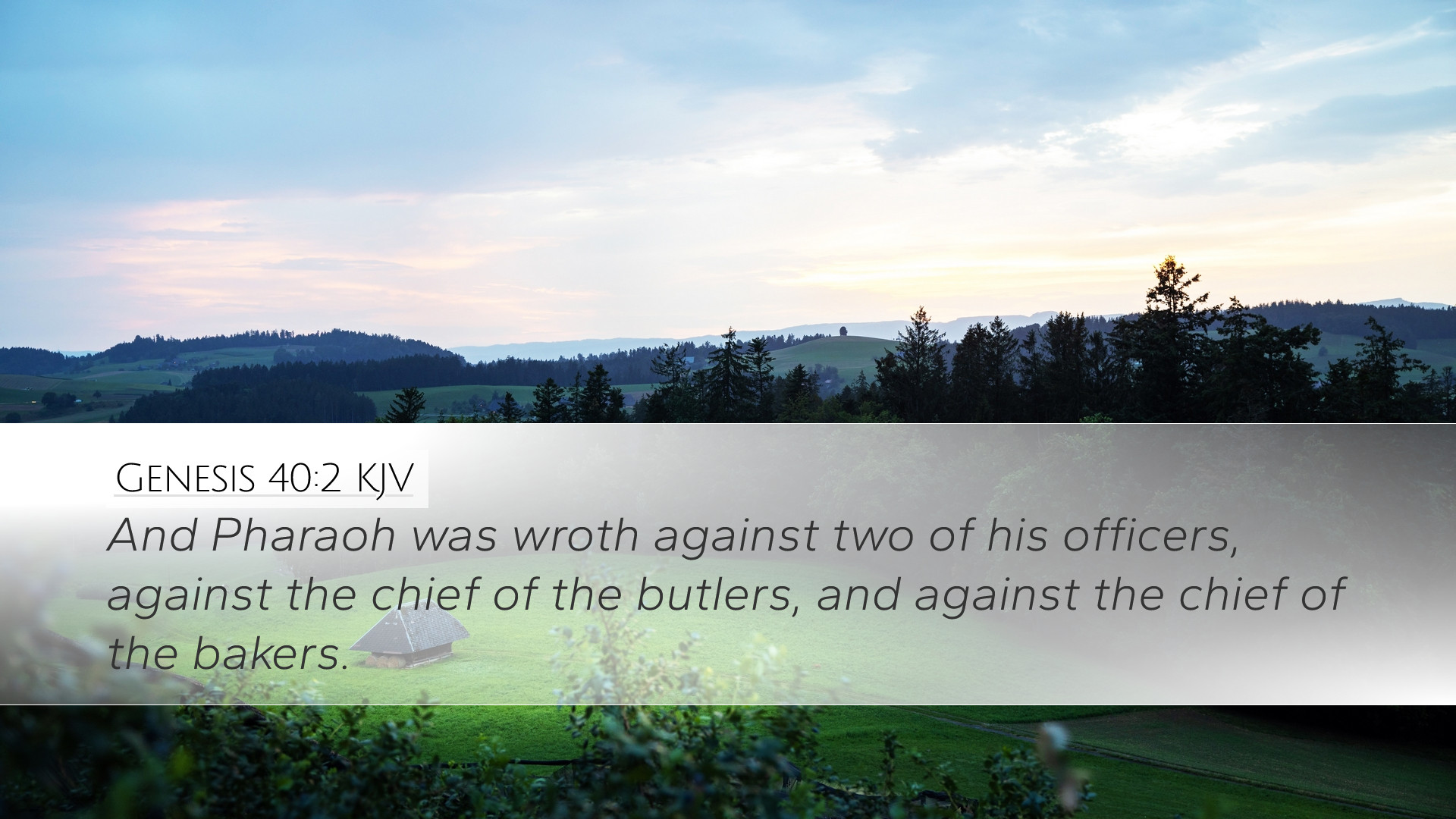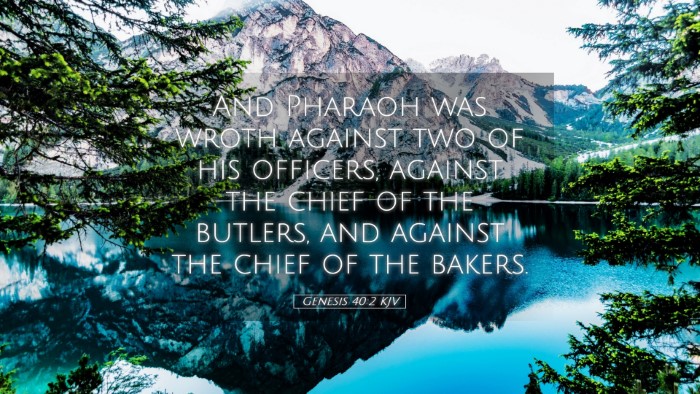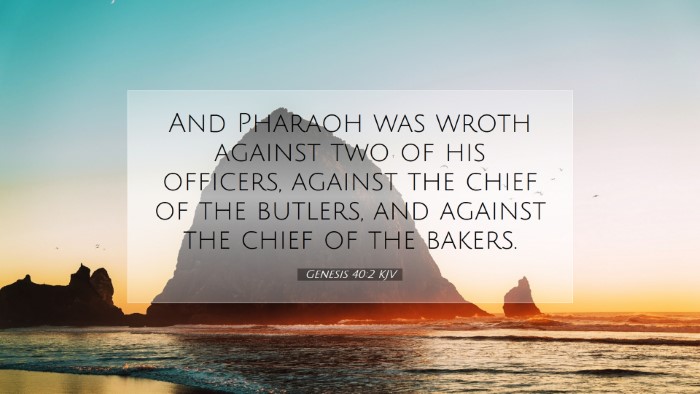Commentary on Genesis 40:2
Verse: Genesis 40:2 - "And Pharaoh was wroth against two of his officers, against the chief of the butlers, and against the chief of the bakers."
Contextual Overview
This verse occurs in the account of Joseph's life, particularly during his time in Egypt. After being unjustly imprisoned, Joseph encounters two of Pharaoh's officials, each of whom experiences a significant dream, which subsequently leads to crucial developments in Joseph's fate.
Insights from Public Domain Commentaries
Matthew Henry's Commentary
Henry underscores the theme of divine providence in this passage. Despite Joseph’s dire circumstances, God’s hand is at work. Henry notes that the anger of Pharaoh against his officers demonstrates the gravity of their roles in the royal court; their failures posed risks not only to Pharaoh himself but also to the kingdom's stability. The text suggests that the butler and baker were culpable of serious offenses, which highlights the seriousness of their roles and responsibilities. Henry emphasizes God’s sovereignty, showing how even the actions of a king align with divine plans.
Albert Barnes' Notes on the Whole Bible
Barnes elaborates on the significance of the roles of the butler and baker, suggesting that these positions were of great trust, and thus the offenses committed were serious. He indicates that Pharaoh's anger reflects a common theme in governance where the king's wrath targets those who betray his trust. The fact that two officers are mentioned indicates that the matter at hand was of considerable importance—a failure in the royal household could necessitate immediate action. Barnes further notes that the dream experiences of these men are crucial as they lead to introducing Joseph to Pharaoh later.
Adam Clarke's Commentary
Clarke offers a perspective on the psychological aspects of Pharaoh's temperament, interpreting the king's anger not merely as personal but as indicative of a ruler who demanded excellence from his court. He infers that the failure of these officials may have been linked to broader issues within the royal household that required rectification. Clarke posits that this moment serves as a pivotal turning point for Joseph, as his interpretation of the subsequent dreams directly leads to his elevation from prison to Pharaoh's court. He suggests that this deeply illustrates God’s providence and the transition from humiliation to exaltation for Joseph, fundamentally altering his trajectory.
Theological Implications
The implications of Genesis 40:2 stretch beyond its immediate narrative, inviting deeper reflection on several themes.
-
Divine Providence:
All three commentators reinforce the theme of divine providence — the assurance that God has a plan, even amidst trials. Joseph’s unjust imprisonment ultimately serves a greater purpose, highlighting how God orchestrates events for His glory and the good of His people.
-
Justice and Accountability:
The king’s response serves to illustrate the importance of accountability in positions of authority. In spiritual leadership, the weight of responsibility should not be taken lightly, as abuses or failures can have ripple effects throughout a community.
-
Transformation through Trials:
This passage conveys how trials can prepare individuals for their destined roles. Joseph’s experience with the butler and baker serves as a foreshadowing of his eventual promotion, suggesting that God often uses adversity as a means of preparation.
Application for Pastors and Theologians
For pastors and theologians, Genesis 40:2 offers rich material for preaching and teaching on several fronts:
-
Encouragement in Trials:
Preaching from this passage can offer encouragement to congregants facing their trials, reminding them that God’s providential plan is often being worked out behind the scenes.
-
Lessons on Leadership:
This narrative presents valuable lessons about leadership and accountability. Church leaders can reflect on the need for integrity and the serious consequences of failure in roles of responsibility.
-
Hope in God’s Sovereignty:
The assurance that God is sovereign over all affairs can provide hope amid uncertainty, a crucial message for believers navigating difficult times.
Conclusion
Genesis 40:2, encapsulated within the story of Joseph, serves as a reminder of the intertwining of human actions and divine purpose. The lesson drawn from the experiences of the butler and baker, as interpreted by notable commentators, is timeless in its relevance and offers fertile ground for scholarly reflection, pastoral application, and personal encouragement.


